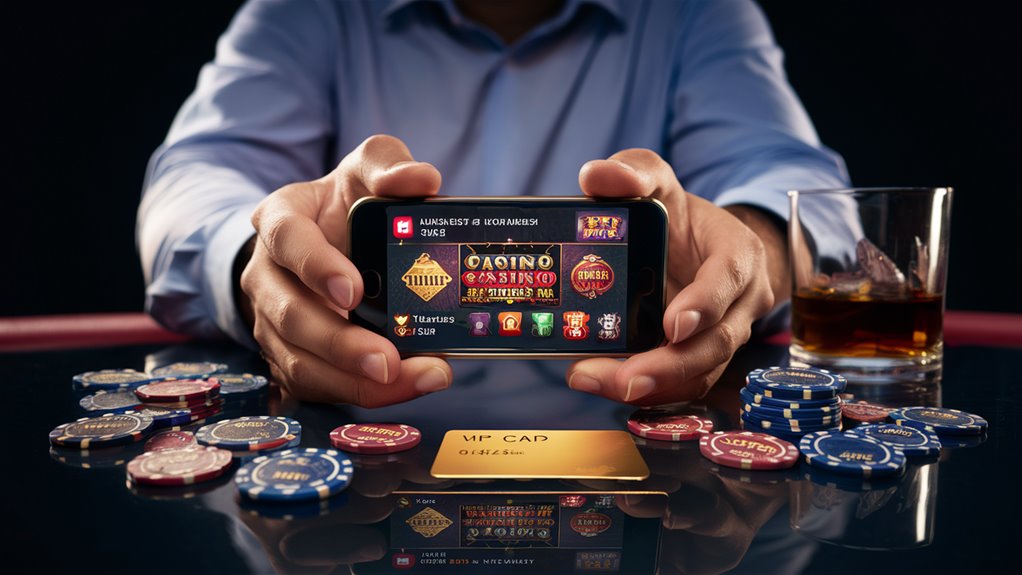Ever notice how online gambling sites seem to know you a bit too well? It’s almost like they can read your mind, suggesting your favorite games right when you’re in the mood to play. Well, there’s actually some pretty clever technology behind this apparent mind-reading act. These platforms are quietly collecting data about your gaming habits, preferences, and playing patterns to create what feels like a tailor-made experience just for you.
Let’s be real, though. While it’s nice to have games and promotions 먹튀검증 커뮤니티 추천 that match your interests, this level of personalization brings up some interesting questions about how it affects our gambling behavior. Think about it – when a platform knows exactly what makes you tick, it can be pretty persuasive in keeping you engaged.
You know how Netflix suggests shows you might like? Online gambling platforms do something similar, but with potentially higher stakes. They track things like your preferred bet sizes, favorite game types, and even the times of day you typically log in. It’s fascinating stuff, but it’s also worth asking ourselves how these personalized experiences might influence our decision-making.
The truth is, while these customized features can make your gaming experience more enjoyable, they’re also designed to keep you coming back for more. Some players find it helpful to have their preferences remembered and their favorite games readily available. Others might want to think twice about how this personalization affects their gambling habits and self-control.
Understanding this technology puts you in a better position to make informed choices about your online gambling activities. After all, knowledge is power, especially when it comes to managing your gaming experience responsibly.
Understanding Personalization in Digital Gambling

Let’s talk about how digital gambling has gotten really personal 먹튀검증 커뮤니티 이용 장단점 these days. You know how Netflix suggests shows based on what you watch? Well, gambling platforms have taken that idea and run with it, creating an experience that’s uniquely yours from the moment you log in.
Think about it – these platforms are like that friend who remembers exactly how you like your coffee. They keep track of which games catch your eye, how much you typically bet, and even what time of day you usually play.
It’s pretty fascinating when you realize that behind the scenes, smart technology is working to understand your preferences and habits.
The really clever part? These systems adapt in real-time. Maybe you’re someone who enjoys poker on weekends but prefers quick slots during lunch breaks. The platform picks up on these patterns and adjusts accordingly.
You’ll notice subtle changes, like getting notifications about poker tournaments just before the weekend or seeing your favorite games right at the top of your screen when you log in.
But it’s not just about making things convenient. These platforms also look out for your wellbeing. If you typically stick to small bets, you might get gentle reminders when you’re betting above your usual range.
Or if you’re the type who sets strict time limits, the system remembers this and helps you stick to your goals.
The whole experience feels a bit like having a personal assistant who knows your gambling style inside and out. From customized bonuses that match your playing habits to responsible gaming messages that actually make sense for how you play, everything’s tailored to fit you just right.
Pretty cool how far we’ve come from the one-size-fits-all approach, isn’t it?
Data Analytics and Player Behavior
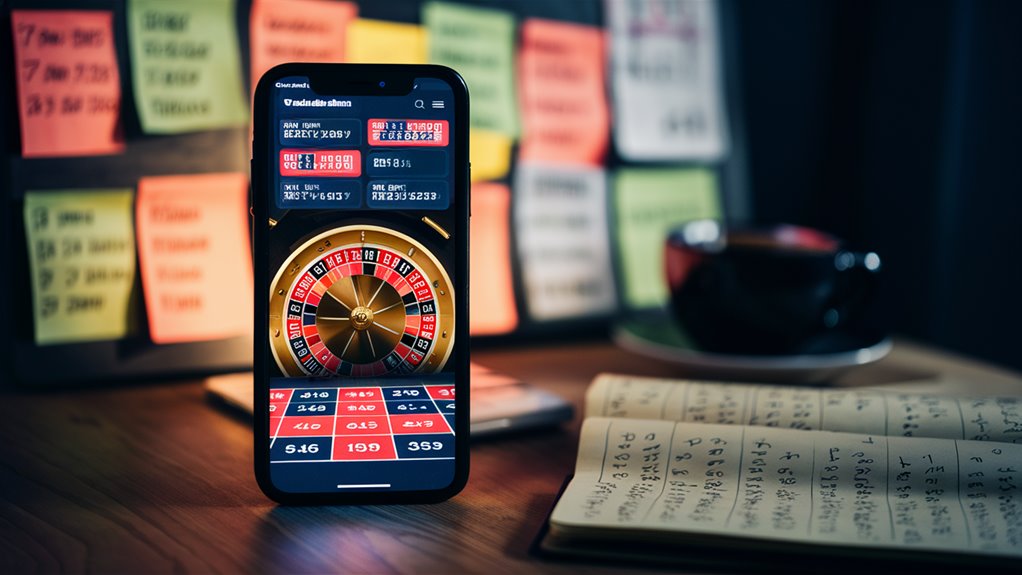
Ever wonder how online gambling sites seem to know exactly what games you’ll enjoy? Well, it all comes down to smart data analysis working behind the scenes. Think of it like having a really observant friend who picks up on all your likes and dislikes.
Every time you log in to gamble online, you’re leaving digital footprints. From the games you choose to how much you bet, these little details paint a picture of who you’re as a player. It’s pretty fascinating when you think about it.
The system learns whether you’re someone who loves the thrill of high-stakes table games or prefers to unwind with a few spins on the slots.
The technology watches and learns in real-time, kind of like a virtual casino host. It notices things like when you typically play, how long you stick around, and what makes you decide to call it a day.
Your reaction to winning and losing, how you use bonuses, and even your preferred way to handle money all become part of your unique player story. This helps gambling sites create an experience that feels tailored just for you, from suggesting games you might like to offering promotions that match your style of play.
What’s really interesting is how all this data comes together to create your personal gambling profile. The system picks up on patterns you mightn’t even notice yourself.
Maybe you tend to play more on weekends or prefer games with specific features. All these little details help shape your customized experience, from the moment you log in until you decide to wrap things up for the day.
Customized Rewards and Bonuses
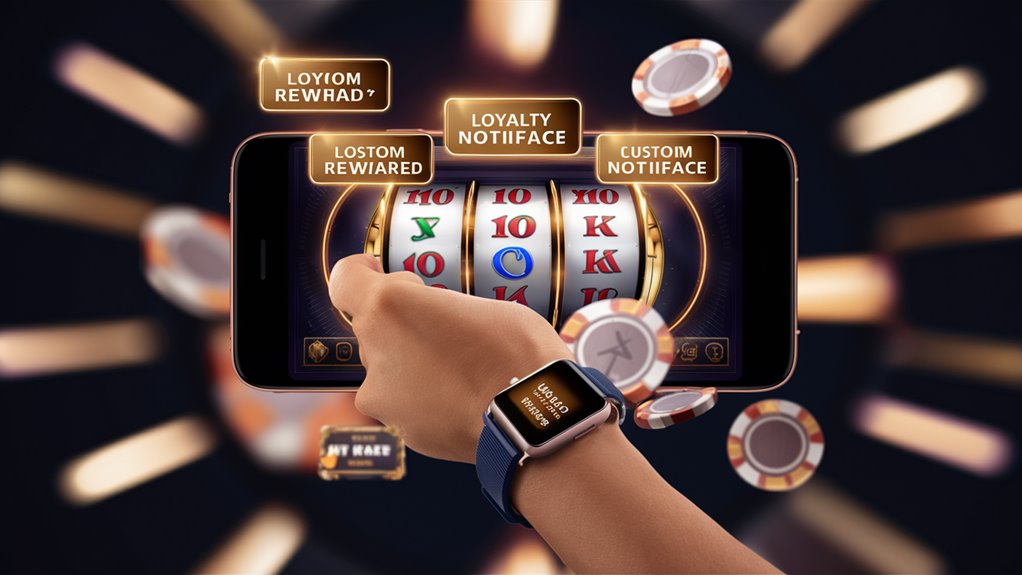
Let’s talk about how modern gaming platforms are getting really clever with their rewards these days. You know how Netflix suggests shows based on what you watch? Well, gaming sites are doing something similar with their bonuses, making them fit just right for each player.
Think about it – every player has their own style. Maybe you’re someone who loves hitting the slots on weekday evenings, or perhaps you’re more into weekend poker tournaments. These platforms pick up on these little habits and start crafting rewards that actually make sense for you.
For casual players who enjoy the occasional spin, you might get smaller, more frequent bonuses that keep things fun without breaking the bank.
High-rollers, on the other hand, could see bigger matched deposits or invites to exclusive VIP events. It’s kind of like having a personal shopper, but for gaming rewards.
The really cool part is how these rewards go beyond just free cash or spins. If you’re big on blackjack, you’ll probably see more table game bonuses coming your way.
Love playing after dinner? Don’t be surprised if some sweet deals pop up right around that time. They even remember your birthday, sending you special treats that match your favorite games.
But it’s not just about throwing bonuses at you. These platforms also help keep things in check with personalized betting limits and tools to help you play responsibly. After all, the best gaming experience is one where you’re having fun while staying within your comfort zone.
Player Communication Strategies
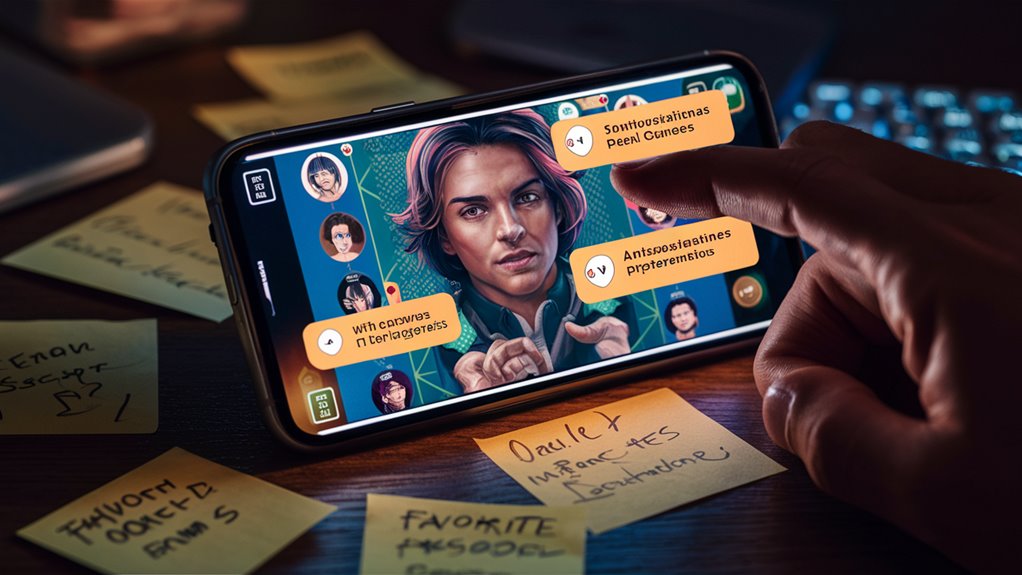
Let’s chat about how gaming platforms keep in touch with players these days. You know how it used to be just a basic email here and there? Well, things have gotten way more interesting.
Think of it like having a friend who really gets your gaming style. These platforms now reach out through all sorts of channels – text messages, those little pop-up notifications on your phone, messages right in the game, and even social media. Pretty cool, right?
The really clever part is how they figure out when you’re most likely to be in the gaming mood. If you’re into sports betting, you’ll get a friendly heads-up about that big match coming up.
Love poker? They’ll make sure you know about tournaments that match your skill level – no more feeling out of your depth or underwhelmed.
What’s really neat is how they adjust their style based on how you play. High-rollers get that VIP treatment (fancy, right?), while casual players receive more laid-back, helpful tips about different games they might enjoy.
And don’t worry about getting bombarded with messages – you’re in control of what you want to hear about and how you want to hear it.
The system’s pretty smart about timing, too. Just hit a jackpot? You’ll get a virtual high-five celebrating your win.
Haven’t logged in for a while? They might drop you a line with something special that matches how you like to play. It’s like having a personal gaming assistant who knows exactly what makes you tick.
Measuring Customer Loyalty Impact
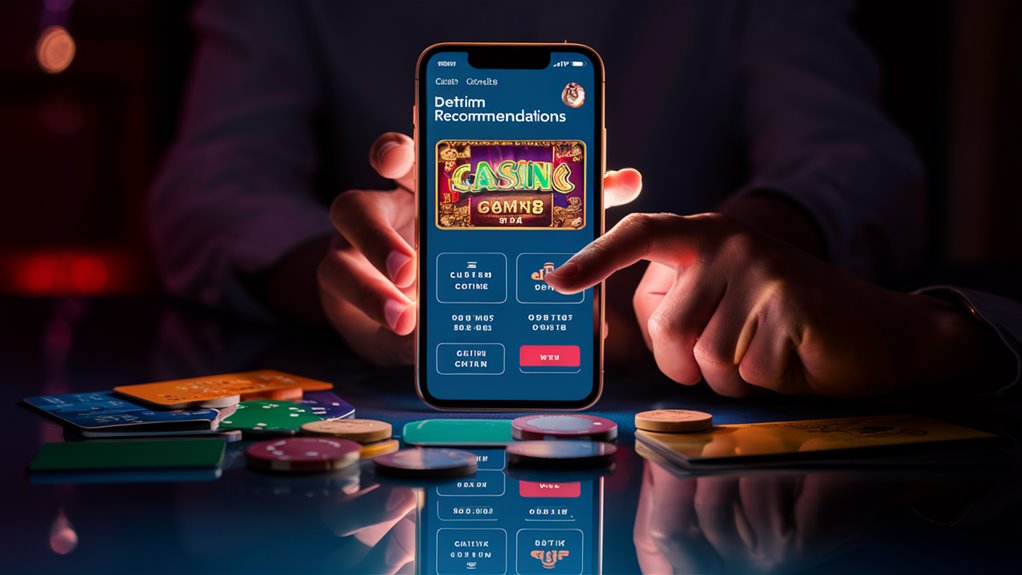
Let’s talk about measuring customer loyalty – you know, beyond all those fancy features and personalized messages we often hear about. The real deal is in the numbers, and you’ll need some solid data to truly understand if your loyalty program is hitting the mark.
Think of it like tracking your fitness progress. Just as you’d measure weight loss or muscle gain, you need to keep tabs on specific metrics that show how engaged your players are.
The big ones? Player lifetime value (PLV), how long they stick around during gaming sessions, and how often they’re making deposits.
Before you roll out those shiny new personalization features, though, you’ll want to get a clear picture of how players typically behave. It’s like taking a “before” photo in your fitness journey.
Run some A/B tests to compare the difference between players who experience your loyalty features and those who don’t. Keep an eye on things like how many players drop off, their visiting patterns, and betting amounts across different groups.
Want to know if all this effort is paying off? Track how often players are using those targeted promotions you’re sending them, and calculate the extra revenue coming from your loyalty program members.
Here’s a pro tip: pay attention to whether players are trying out new games or betting options because of your recommendations. Setting up a simple dashboard can help you spot loyalty trends and catch any important changes in how players are behaving.
Privacy and Regulatory Considerations
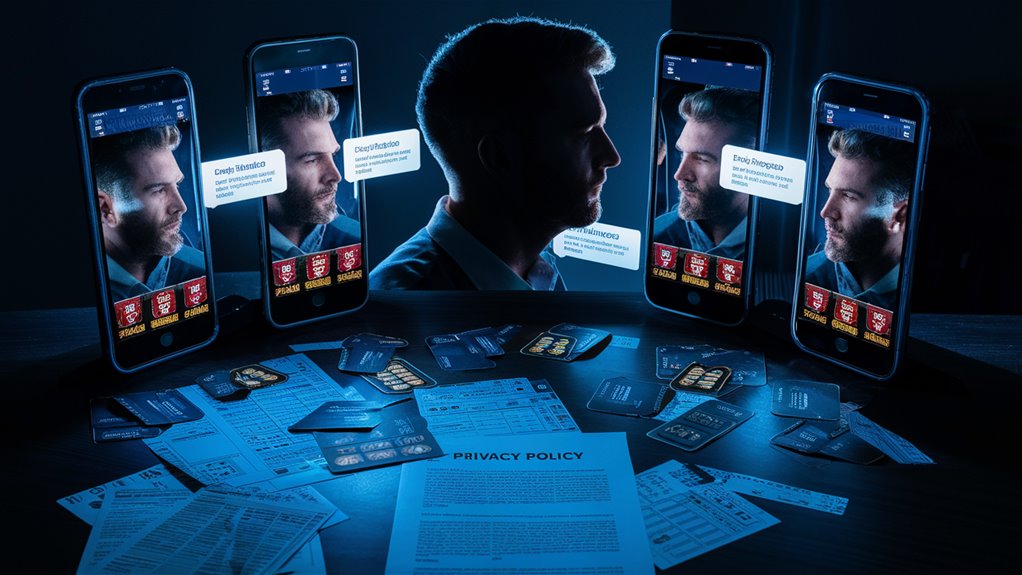
Let’s talk about privacy and regulations in online gambling – it’s a bit like walking through a maze, but we’ll figure it out together.
You know how personalized loyalty programs are great for players? Well, they come with some serious responsibilities when it comes to protecting customer data.
Think about it this way: before you can start tailoring those special offers and bonuses, you need to make sure you’re following all the rules.
GDPR in Europe, CCPA in California, and various other regulations around the world all have their own requirements. It’s kind of like having different house rules at each friend’s place – you need to know them all to play nice.
Here’s what you really need to focus on: always get clear permission from your players before collecting their data.
It’s just common sense, right? Make sure they can easily opt out if they want to, and keep your privacy policies crystal clear. No one likes finding surprises in the fine print.
Now, responsible gambling is super important too. You’ll want to keep a close eye on betting patterns and set up proper deposit limits.
It’s similar to how a good friend might tap you on the shoulder if they think you’re getting carried away – your systems should do the same for players.
One tricky part is handling data across different markets. Picture it like keeping separate piggy banks for different savings goals – you need to keep player data neatly separated based on where they’re from.
And of course, you’ll want rock-solid security to keep all that sensitive information safe.
Pro tip: team up with compliance experts who know their stuff. Rules keep changing, and it’s their job to stay on top of all that. Trust me, it’s worth having someone in your corner who lives and breathes regulations.
Future of Personalized Gaming
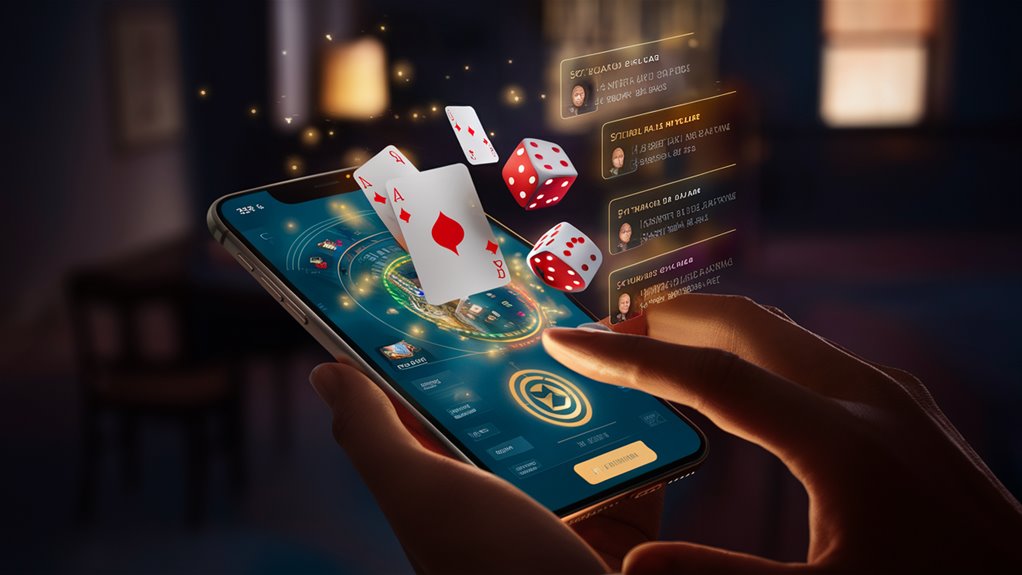
Gaming is about to get a whole lot more personal, and you’re in for quite a ride as we head into 2024 and beyond.
Think about it – what if your favorite online games could actually understand and adapt to your style? Well, that’s exactly where we’re heading with AI and machine learning leading the charge.
You know how frustrating it can be when a game feels too easy or way too challenging? Those days are numbered.
Smart systems will soon adjust everything from difficulty levels to betting limits in real-time, just by learning how you play. It’s like having a digital friend who knows exactly what makes your gaming experience tick.
The really cool part? Your virtual gaming world will feel uniquely yours.
The background music might shift to match your mood, while the visuals adapt to what catches your eye. And if you’re wondering about security, blockchain technology has got your back, making sure your rewards and transactions are safe and crystal clear.
But let’s be real – this isn’t all sunshine and rainbows. With great personalization comes great responsibility, right?
You’ll need to keep an eye on how your data is being used, but the good news is you’ll have more control than ever. The gaming industry is working hard to strike that sweet spot between amazing personalized experiences and responsible gaming practices.
The best part? All your preferences will follow you seamlessly across devices.
Whether you’re playing on your phone, tablet, or computer, your gaming world will recognize you and adjust accordingly. It’s like walking into a room that automatically arranges itself just the way you like it.
Common Questions
How Long Does It Take to See Results From Personalized Gambling Strategies?
You know, seeing results from your personalized gambling strategy isn’t an overnight thing. Think of it like starting a new workout routine – you need to give it time and stay consistent. Most people start noticing some initial patterns within the first few weeks, but here’s the real deal: getting meaningful, reliable results typically takes about 3 to 6 months of dedicated tracking and tweaking.
During those first couple of weeks, you might spot some quick wins or losses, but don’t get too excited or discouraged just yet. It’s like learning to read the market – you need enough data points to separate genuine patterns from random luck. Plus, every player’s journey is different. Some folks might see their strategy clicking into place after just a month, while others need more time to fine-tune their approach.
The key is patience and consistent record-keeping. Keep track of your decisions, adjust your strategy when needed, and remember that building a solid gambling approach is more like a marathon than a sprint. After about six months of careful monitoring, you’ll have a much clearer picture of what works for you and what doesn’t.
Can Personalization Techniques Increase Problem Gambling Behaviors Among Vulnerable Players?
Let’s talk about how personalization in gambling can be a double-edged sword, especially for vulnerable players. You know how online platforms seem to know exactly what makes you tick? Well, that same technology can potentially make gambling problems worse for some people.
Think about it like this: gambling companies collect data about your playing habits, preferred games, and even when you’re most likely to play. They use this information to create specially designed promotions and messages just for you. It’s similar to how your favorite shopping sites remember what you’ve bought and suggest similar items.
The tricky part is that these personalized approaches can really get under your skin when you’re trying to cut back or quit gambling. Picture getting a tempting bonus offer right when you’re feeling stressed or lonely, which research shows are common triggers for problem gambling. It’s like having a friend who knows your weaknesses and uses them against you.
What makes this particularly concerning is the sophisticated tracking systems that can identify patterns in your behavior. They might notice you tend to gamble more on payday or late at night, then time their messages accordingly. For someone struggling with gambling urges, these perfectly timed prompts can be incredibly hard to resist.
What Percentage of Players Respond Negatively to Personalized Marketing Approaches?
Let’s talk about player reactions to personalized marketing in the gambling world. You know how it goes – some people love getting tailored offers, while others, well, not so much. Research shows that around 15-20% of players actually feel uncomfortable with personalized marketing approaches in gambling.
Think about it like this: imagine someone tracking your favorite restaurant orders and sending you daily promotions. Some folks appreciate the attention, but others might find it a bit too close for comfort. The same goes for gambling marketing – these players often worry about their privacy and don’t like feeling watched or targeted.
Interestingly, these negative reactions aren’t uniform across all groups. Younger players tend to be more accepting of personalized marketing, having grown up in a digital world. Older players, on the other hand, often show more skepticism about sharing their gaming preferences and personal data.
The key factors driving this discomfort? Privacy concerns top the list, followed by feelings of being over-marketed to, and concerns about how their personal data might be used. But remember, these numbers can shift depending on factors like cultural background, gaming experience, and individual comfort with technology.
How Much Should Online Casinos Invest in Personalization Technology?
Let’s talk about investing in personalization technology for online casinos. You know how every player wants to feel special, right? Well, the sweet spot for most casinos typically falls between 3-5% of annual revenue, but there’s more to consider than just throwing money at fancy tech.
Think of personalization like building relationships with your players. Just as you wouldn’t spend the same amount of time and energy on a casual acquaintance as you would on a VIP client, your investment should scale with your player base size and revenue potential.
For smaller casinos just starting out, staying closer to that 3% mark makes sense. But if you’re running a larger operation with thousands of daily players, you might want to push toward 5% or even slightly higher to handle the complexity of personalizing experiences at scale.
The key is tracking your return on investment. Are your players sticking around longer? Are they engaging more with your platform? These metrics will tell you if you’re spending wisely. Start small, measure results, and gradually increase your investment as you see positive returns in player retention and engagement rates.
Does Personalization Effectiveness Vary Across Different Age Groups and Cultural Backgrounds?
Let’s talk about how personalization hits different when we look at various age groups and cultural backgrounds. You know how everyone’s got their own preferences, right? Well, it turns out younger folks tend to get excited about interactive content and love connecting with others through social features. They’re all about that dynamic, fast-paced experience.
But here’s where it gets interesting. Our older users usually prefer a more straightforward approach to personalization. They appreciate familiar patterns and clear, uncomplicated customization options. Think of it like music preferences, some people love the latest trending hits, while others stick to their trusted classics.
Cultural backgrounds play a huge role too. What works perfectly for someone in New York might not resonate with someone in Tokyo or Mumbai. Some cultures value individual expression and bold personalization, while others respond better to subtle, group-oriented customization.
The key is understanding these differences aren’t just random. They’re shaped by generational experiences, cultural values, and personal comfort with technology. So when we’re talking about effective personalization, there’s really no one-size-fits-all solution. It’s more like having a wardrobe of options ready to match different preferences and needs.
